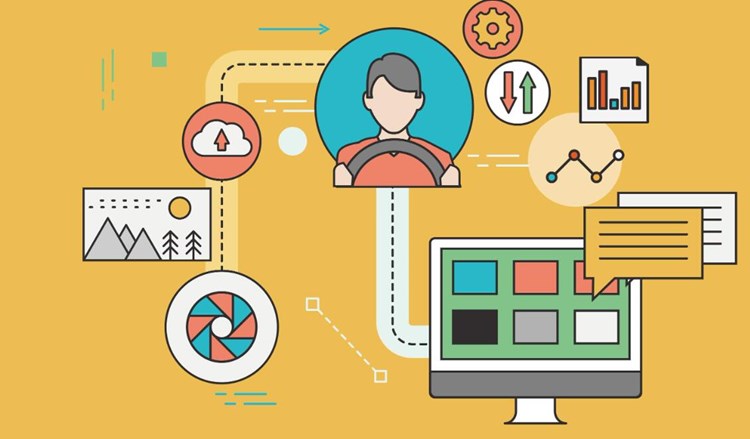中文化、本土化、云端化的在线跨平台软件开发工具,支持APP、电脑端、小程序、IOS免签等等
Title: App Development Guide: Overview and Detailed Introduction
Introduction:
In today's digital era, mobile applications, commonly known as apps, have become an integral part of our daily lives. From social media platforms to e-commerce stores, apps are transforming the way we interact and access information. If you have ever wondered about app development or are interested in learning the principles and intricacies behind it, this comprehensive guide will provide you with a detailed introduction.
I. What is App Development?
App development refers to the process of creating software applications that run on mobile devices such as smartphones or tablets. These applications can be designed for various platforms, including iOS and Android, and serve a wide range of purposes, such as entertainment, productivity, or learning.
II. The Basics of App Development:
1. Understanding Programming Languages:
To build an app, you need to be familiar with programming languages such as Java, Swift, or Kotlin. These languages allow developers to write the code that forms the backbone of an application.
2. IDE (Integrated Development Environment):
An Integrated Development Environment is a software application that provides tools, libraries, and features required for app development. Popular IDEs include Android Studio for Android app development and Xcode for iOS app development.
III. The App Development Process:
1. Conceptualization and Planning:
Begin by brainstorming and deciding on the purpose, target audience, and key features of your app. Conduct market research and competitor analysis to identify unique selling points and opportunities for improvement.
2. Wireframing and Designing:
Create wireframes that serve as blueprints for your app's structure and user interface. Design the user interface (UI) and user experience (UX) elements using design tools such as Sketch, Adobe XD, or Figma.
3. Development and Coding:
Start coding your app using the chosen programming language and IDE. Implement features, functionalities, and incorporation of API (Application Programming Interface) integration for accessing external services.
4. Testing and Debugging:
Thoroughly test your app to identify and fix any bugs, glitches, or performance issues. Conduct usability testing to ensure a smooth user experience across different devices and platforms.
5. Deployment and Release:
Submit your app to the respective app stores (App Store for iOS and Google Play Store for Android) following their guidelines and regulations. Optimize app store metadata, such as descriptions, screenshots, and keywords, to improve visibility and downloads.
IV. Advanced Concepts and Tools:
1. Cross-Platform Development:
Explore cross-platform app development frameworks like React Native, Flutter, or Xamarin, which enable developers to write code once and deploy it on multiple platforms.
2. Back-End Development:
Learn about server-side programming, databases, and APIs to create and manage the back-end infrastructure of your app. Familiarize yourself with languages like PHP, Python, or Node.js.
3. App Analytics and Performance Monitoring:
Implement analytical tools like Google Analytics or Firebase Analytics to gather data about user behavior, track app performance, and make data-driven decisions.
V. Resources and Further Learning:
1. Online Learning Platforms:
Platforms like Udemy, Coursera, or edX offer a wide range of app development courses and tutorials. These courses cover various topics, from beginner-level introductions to advanced concepts.
2. Developer Communities and Forums:
Join online communities and forums like Stack Overflow or Reddit to connect with experienced developers, ask questions, and share knowledge.
Conclusion:
App development involves a combination of creativity, coding skills, and problem-solving. By understanding the fundamental principles and following the app development process, you can embark on a journey to create impactful and successful applications. Continuous learning, practicing, and staying updated with the latest trends will help you excel in this rapidly evolving field.





